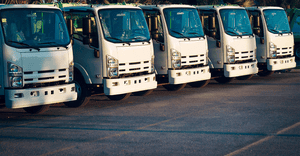Episode 117: Implementing a National Vision for Recycling
In this episode of NothingWasted!, we bring you a dynamic session from WasteExpo, “Implementing a National Vision for Recycling.” You’ll hear from Brent Bell, Vice President of Recycling, Waste Management; Michelle Leonard, Senior Vice President, SCS Engineers; and Nena Shaw, Acting Division Director, Resource Conservation and Sustainability Division, Office of Land and Environmental Management, U.S. Environmental Protection Agency. Listen as they dig into how the adoption of a national recycling goal could change the way we recycle, which COVID-19 changes are temporary and which are permanent, and so much more.
Here’s a sneak peek into the discussion:
Moderator Anne Germain, COO & SVP of Technical and Regulatory Affairs, National Waste & Recycling Association: We know that EPA has established a 50% recycling goal by 2030, which sounds like a long time away but is really right around the corner, and that is quite ambitious. How could we achieve this?
Leonard: We know we’ve got to educate people on not only that this is the right thing to do but how to do it correctly, and that it is necessary. We’ve got to increase the efficiency of processing materials. We can talk about packaging as well, but just getting the materials separated and sorted and to the right place is a huge challenge in and of itself. And of course we’ve got to have the markets for those materials and that means increasing the use of post-consumer recycling and requiring that in new products to stimulate the demand.
Moderator: Do you think it’s going to be necessary to implement policy changes in order to get everybody to commit to using more post-consumer materials in new products?
Leonard: I like to start out with incentivizing programs, the carrot versus the stick. For instance, a financial incentive or mechanism that rewards the manufacturer for using recycled materials.
Bell: Recycling is such a unique industry. If you’re at Chevrolet making cars, and suddenly no one wants to buy cars from you, you’d stop buying tires and glass and all the parts that go into making a car. Recycling doesn’t do that; we take material in every day regardless of the demand on the outbound market. So we have to have homes for this material every day or there’s nowhere for it to go.
Moderator: On the topic of EPR, what steps should stakeholders be taking to bridge the gap between policies that need to be specific to communities and policies that will get us to national goals?
Bell: In terms of policy, we think minimum content will certainly be helpful. But yes, the devil is in the details. We used to oppose most EPR programs, but we’re looking at the language to see if something can be workable in those programs. If we’re investing hundreds of millions of dollars, there is uncertainty with states that have EPR guidelines. What does that look like for a traditional recycler? What role will that recycler play? So I do have a lot of questions as each state passes, and it does indicate on where our investment strategies will focus. Now, EPR for hard-to-recycle materials? Absolutely.
Moderator: Is the industry doing a good enough job weaving the narrative of climate mitigation into the policy debates that are taking place right now?
Leonard: I think we’re finally starting to connect those dots, and those discussions have begun. They’re not going to go away, they’re only going to get more robust. We’ve passed legislation in California to reduce the disposal of organics in landfills 75%, which is tied directly to our climate-change goals in our state.
#NothingWastedPodcast
About the Author(s)
You May Also Like




